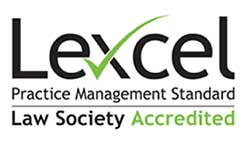The death of a family member or close friend is a traumatic experience. A number of steps require to be carried out in the days and weeks following a death. Here you will find some practical guidance on what needs to be done at this time and how theEstate Planning Solicitors at Wilford Smith can advise and assist you at this very upsetting time. If you have any further questions about what to do when someone dies, call us today to find out how we can help.
Registering the death
When a person dies, there is a legal requirement that their death be registered within five days. Provided that the death has not been reported to the coroner, a doctor will issue a certificate stating the cause of death.
How do I register a death?
A death is registered with the Registrar of Births, Deaths and Marriages. In England and Wales, a death can be registered at any register office, however to ensure this is done as quickly as possible it is preferable to register at the office in the area where the death took place. If the person lived at home their death should to be registered at the register office for the district that they lived in. If the person died in hospital or a nursing home, the registering of the death should be made at the register office for the district in which the hospital or nursing home is located.
The law states that only certain people can register a death. These people include:
- a relative of the deceased;
- someone who was present at the death; and
- the person making arrangements with the funeral director.
If the person died in hospital, an administrator from the hospital may also register the death. In cases of an unexpected death, the person who found the body, or the person who is in charge of it, is also entitled to register the death.
What information do I need to register a death?
The person who is registering the death will have to be able to provide the Registrar with the medical certificate of death provided by a doctor. They must provide the deceased’s full name, including any previous names (e.g. their maiden name), their last address, their date and place of birth, their occupation, and the full name, date of birth and occupation of any surviving spouse or civil partner. If possible, it is also advisable to bring their birth certificate, marriage or civil partnership certificate, NHS medical card, proof of their address (e.g. a utility bill), National Insurance number, driving licence and passport. The person registering the death should also bring proof of identity, such as their driving licence or passport.
Arranging the funeral
Once the death has been registered, the funeral can be arranged. You should seek to establish whether the person made a Will, and if they did, locate this as soon as possible. This will identify who the executors are, and may also detail their wishes regarding their funeral. The deceased person may have made a Will without informing you or others in their family. If a copy cannot be found in their personal possessions, they may have left one with their solicitor or bank for safekeeping. A copy of the Will may otherwise have been left with the Principal Registry of the Family Division, or with a dedicated Will storage service.
Other steps
In the weeks following the death, you should notify relevant organisations. Government departments such as the Passport Office, HM Revenue & Customs and the DVLA should be informed as soon as possible after receipt of the death certificate. The person’s passport and driving licence should also be returned by post to the DVLA and Passport Office.
Contact our Estate Planning Lawyers Sheffield
We understand how difficult it can be to cope following the death of a loved one. That is why our lawyers aim to assist you to carry out the necessary steps following a death, taking as much of this burden from your shoulders as possible. Our professional and sensitive Estate Planning Solicitors have the necessary skills and experience to deal with these legal procedures quickly and effectively, which helps to minimise any additional stress for you at this difficult time. Please do not hesitate to contact us if you have any questions about what to do following the death of someone close to you.
Our Estate Planning Solicitors are based in Sheffield and assist clients throughout England and Wales. Contact us today on 0808 164 1349 to find out how we can help.



